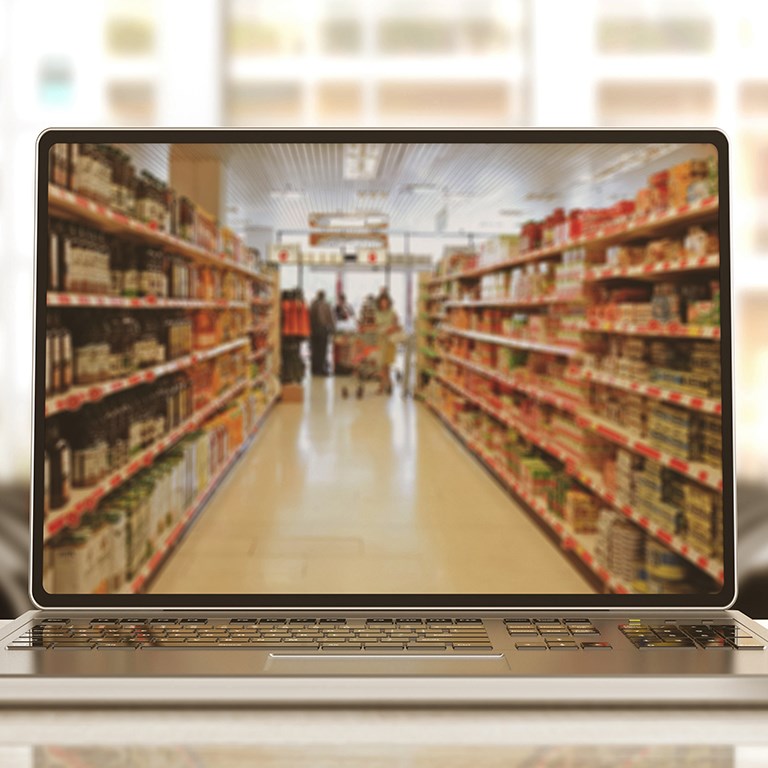動画
Despite forecasts for growth in online grocery shopping, the vast majority of US consumers still prefer to go to a physical store to browse and buy groceries. Stephen Caine, a partner with Bain's Retail practice, describes how omnichannel grocers can tackle issues of customer convenience by personalizing the digital experience.
Read the transcript below.
STEPHEN CAINE: Grocery shopping may be perhaps the most habitual category in all of retail. Today, the US still lags behind many other developed countries in terms of online adoption. Only about 3% of groceries today are purchased online, but we know that number will change. It's just a matter of time. We believe that that number will at least triple in the next decade, and that we're on the cusp of a major increase of customer adoption of digital shopping.
We carefully study consumer behavior and online grocery shopping to understand why adoption has lagged that of other countries, and to understand how to unlock the potential. The reality is that it's just not as convenient as it should be. In fact, most first-time users will tell you that it doesn't actually save them time.
It's true that there are some elements of online grocery shopping that are as good as, if not better than, traditional grocery shopping today. Things like frictionless payment, being able to repurchase products you know you already like. But there are other elements that are still not quite there yet—discovering new products, making real-time trade-offs between products based on quality, price, what's on sale. That's more difficult to do in a digital environment.
Even elements of home delivery aren't that easy. In theory, they should be. But they aren't, due to operational issues that plague just about every online retailer.
So to seize on this opportunity, omnichannel grocery retailers need to address this convenience gap, and focus all their digital innovation on those elements of the customer journey which will make a difference—such as creating shopping lists from a wide range of entry points, making price comparisons easier, and dealing with substitutions that inevitably come up in any shopping occasion. We've also learned that it takes more than one try for customers to really appreciate the benefits of online shopping. In fact, it takes at least three or four before they really appreciate the benefits and begin to change their shopping behavior.
One of the other things we've learned in our research is just how strong the home-store advantage is in grocery shopping. When we ask new shoppers who they would turn to first if they were to shop online, over 85% say that they would turn to their traditional grocery retailer they shop every week. This home-store advantage can be an incredibly powerful tool for a traditional retailer, as long as they focus on their core customer, capturing them, and then execute perfectly.
One of the powerful weapons for an online retailer is to focus on personalizing the shopping experience, by taking their data, combining it with other data, and using that to personalize and bring the experience to life for the customer. So we know that the online grocery market will experience tremendous growth in the next decade. And for omnichannel grocers, this presents a tremendous opportunity to help shape customer behavior, as well as grow their share of the market.
But to do so, they'll have to address the convenience gap. They'll have to take advantage of their home-store incumbent advantage that they have today. And then, focus their digital innovation on addressing each element of the customer journey, which will drive trial and, ultimately, adoption and loyalty.

Omnichannel Grocery Is Open for Business—and Ready to Grow
With consumer habits still evolving, traditional grocers have a unique opportunity to lead the online migration.
